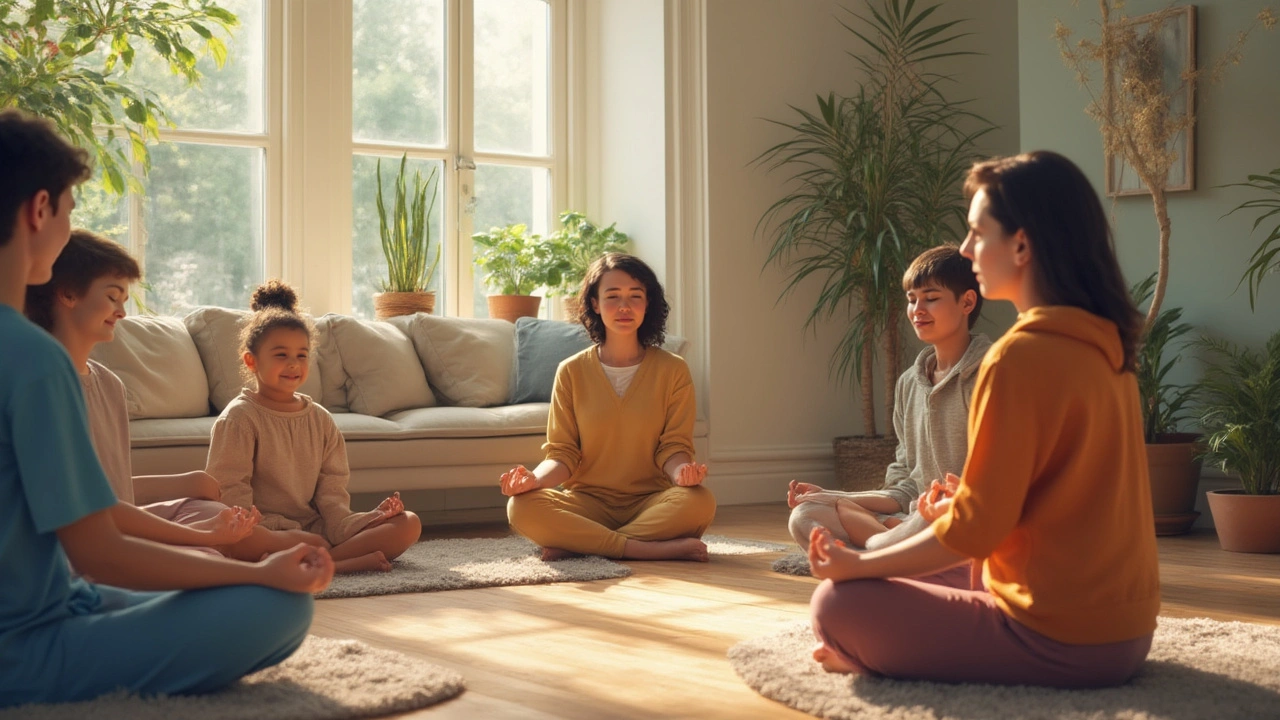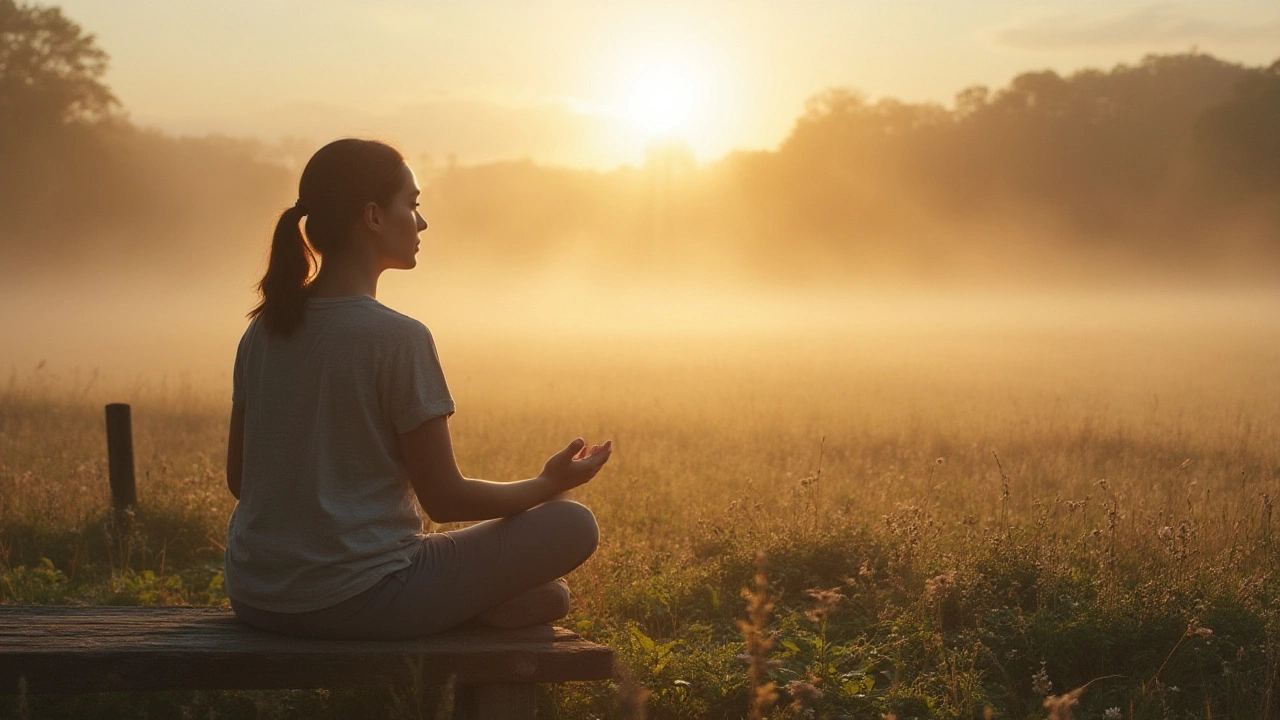Ever feel like the whole world is spinning way too fast? That relentless buzz of news alerts, emails, to-do lists, and never-ending notifications can leave even the best of us feeling frazzled. What if the secret to rebooting your energy, your health—even your happiness—wasn’t grinding harder, but slowing down and finding your center? Calmness isn’t just a mood; it’s a power move for life.
Why Calmness Matters for Your Mind and Body
Stress doesn’t just make you grumpy—it messes with your entire system. When you’re tense, your body releases hormones like cortisol and adrenaline, which can be helpful if you’re running from a saber-toothed tiger (or, you know, a speeding deadline). But day in and day out? Not so much. Chronic stress is linked to headaches, insomnia, digestive issues, high blood pressure, and even a higher risk of heart attacks. No joke: The CDC reported that work-related stress causes nearly 120,000 deaths each year in the U.S. That’s like the entire population of a small city just… gone, because folks couldn’t catch a break.
On the flip side, at least one Harvard study revealed that people who made a habit of practicing mindfulness and relaxation actually showed reduced inflammation and lower risk of chronic illnesses. Those people also rated themselves as happier and more satisfied with life. So, calmness actually shows up in your bloodwork (and your smile). Here’s a quick look at how the nervous system works:
| System | Response During Stress | Response During Calm |
|---|---|---|
| Sympathetic Nervous System | Increases heart rate, tenses muscles | Slows heart rate, relaxes muscles |
| Parasympathetic Nervous System | Low activity | High activity, promotes relaxation |
| Hormones | High cortisol/adrenaline | Low cortisol, balanced hormones |
Basically, when you tap into calmness, you give your mind and body time to repair, recharge, and grow. You’re not just avoiding the bad stuff—you’re helping your body do the good stuff.
Understanding the Triggers: What Really Disrupts Your Calm?
It’s easy to say, “Just stay calm.” It’s harder to live it when your phone won’t stop buzzing or your brain is playing greatest hits of all your worries at 3am. So, what actually ruins your calm? Besides the usual suspects—work, money, busy mornings, family drama—there are sneaky culprits. Poor sleep is a big one. Even one night of tossing and turning ramps up your stress hormones and makes everything feel overwhelming the next day. The National Sleep Foundation says adults need 7–9 hours, but one in three Americans are skimping on that and paying for it with their nerves.
Another quiet calm-killer: info overload. If you ever find yourself zombie-scrolling Instagram and realizing you’re just… tired, you’ve felt this. Researchers at Stanford actually scanned the brains of people hit with a flood of notifications or constant multitasking. Those brains lit up in the parts linked with overwhelm, anxiety, even chronic fatigue. Not good.
There’s also a link between diet and calm. Junk food spikes your blood sugar, and that crash messes with your mood. Omega-3s (like you get from salmon, chia seeds, or walnuts) and complex carbs actually support a chill mood by balancing brain chemicals. So yes, what’s on your plate matters as much as what’s in your planner.
Let’s not ignore one more subtle factor: your environment. Cluttered spaces can spike cortisol. Harvard’s Center on the Developing Child found that kids exposed to noisy, chaotic homes had a harder time calming down—same goes for adults. So that pile of laundry or the racket outside? It really could be cranking up your stress without you knowing.

Science-Backed Ways to Bring Calmness Back into Your Life
Here’s where things get good. You don’t have to book a silent retreat or become a yoga influencer to dial up your calm. Small tweaks work—even five-minute rituals can flip the switch.
- Mindful Breathing: Studies at Massachusetts General Hospital show that slow, deep breathing lowers blood pressure within minutes. Try inhaling for four seconds, holding for four, exhaling for four—a mini reset you can do anywhere.
- Digital Detox: Pick one hour each evening to stash your phone somewhere out of reach. The University of Pennsylvania tracked people who cut their social media use in half; after three weeks their anxiety dropped by nearly 25%.
- Nature Immersion: Got a tree? Use it. Japanese research into 'forest bathing' found that just 20 minutes in green spaces slashed cortisol levels by one third. No forest? Even sitting by a window with plants offers benefits.
- Gratitude Journaling: Cornell University spotted a cool trend—people who wrote down three good things each day slept better, stressed less, and felt more upbeat about life, even during tough times.
- Movement Snacks: Stretching, quick walks, or even dancing to a favorite song gives your nervous system an instant calm boost. One study from Princeton showed even light exercise tones down overactive brain circuits linked with anxiety.
- Foods for Calm: Reach for nuts, berries, and leafy greens. Foods high in magnesium and antioxidants (like pumpkin seeds and blueberries) support brain balance, while caffeine and sugar can fire up nerves instead.
- Breathable Spaces: Try decluttering one surface today. About 54% of respondents in a 2024 Good Housekeeping survey said clean spaces instantly put them in a better mood.
Not every hack works for every person, but mixing a few calming routines into your day leaves less room for stress to run wild. Try stacking these habits onto daily cues—add one while waiting for coffee, another before bed. The more you practice, the easier calmness sticks.
Bringing Calmness Into Everyday Moments
Getting calm isn’t about escaping to the spa (though that sounds amazing). It’s about keeping your cool in the middle of mess, deadlines, family chaos, or noisy commutes. It’s possible—promise.
Start by picking ordinary moments where stress usually shows up. Waiting in line? Try that breathing technique. Stuck in traffic? Play a funny podcast or chill playlist instead of listening to news drama. Got a tough conversation coming up? Sip water slowly, hold something comforting—a stress ball, a cool stone, or your favorite pen—and ground yourself before jumping in.
At work, try the Pomodoro Technique (25 minutes focused work, 5-minute break). University of British Columbia researchers found that regular mini-breaks kept people sharper and happier for hours, even on heavy days. At home, set up a wind-down routine—dim lights, read, listen to soft music. This signals your brain that it’s time to power down, not panic about the next day.
Don’t forget about micro-joys: five minutes with a pet, a spritz of calming lavender mist, even pausing to sip a warm cup of tea. Neuroscience from UCLA shows these small positive touches train your brain to find “islands of calm” even when your surroundings get rough. Keep little reminders for yourself—post-it notes with affirmations, a photo of your favorite place, or an aromatherapy roller by your desk.
If you live with others, “calm contagion” is a thing: people who are chill help everyone around them relax. Couples who laugh together after arguments bounce back from stress faster than those who don’t, say University of Denver marriage researchers. Kids, pets, and even coworkers pick up on your mood. Your calmness is more powerful than you think.

Cultivating Calmness for Lifelong Wellbeing
You weren’t born frazzled. Babies have no problem chilling out (unless they need a snack, of course). As adults, it’s easy to lose that but, no surprise, you can actually get it back.
The magic isn’t some impossible, all-or-nothing lifestyle. It’s about noticing stress before it takes over, and then picking one or two tricks to steer yourself into a better headspace. Recent surveys from the American Psychological Association say that 75% of adults feel their stress damages their health, but only 35% use stress-busters regularly. The gap? Usually, just forgetting to make calmness an intentional part of daily life.
What trips people up? Often, the belief that calmness is only for certain people (meditators, yogis, wellness gurus). That myth is stubborn, but the science says anyone can build calm into their routine, even if you’re a born-and-bred worrier. Give yourself permission to experiment: try quiet mornings, meditative walks, short prayer, visualization, or simply zoning out with mindless art for a bit. Your brain loves learning calm in all sorts of ways. If one habit doesn’t fit, swap it until something sticks.
Think of calmness as a gym for the mind. You don’t get buff after one push-up, and you won’t hit peak chill after a single deep breath. But the more you practice, the more automatic it gets. Meditation apps, yoga videos, calming music playlists, or just silent time off the grid—these are all ways to build up your "calm muscle." Consistency matters more than perfection.
Final tip: if your stress feels too big to handle, don’t hesitate to check in with a professional. Therapists and counselors are seeing more people open up about this, especially since the pandemic, and they have loads of science-backed tricks to offer.
Life won’t always slow down for you. But your mind can. Revitalize your life by choosing calmness as often as you can, in the big moments and all the little daily ones. It brings everything—energy, happiness, even health—back into balance. And honestly, couldn’t we all use a bit more of that?
